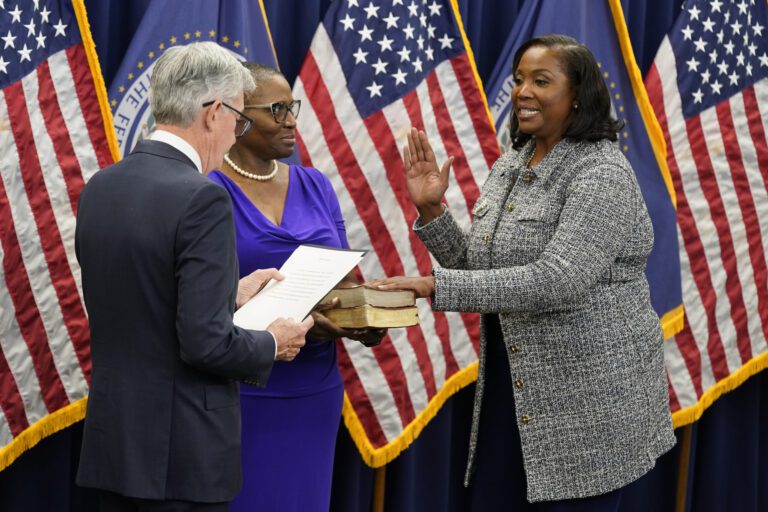Governor Lisa Cook’s Legal Challenge Against President Trump: A Fight for Federal Reserve Independence
Governor Lisa Cook of the Federal Reserve is gearing up for a significant legal battle against President Donald Trump. This unprecedented conflict arises from Trump’s attempt to remove Cook from her position over allegations of mortgage fraud, setting the stage for a potential Supreme Court case that could reshape the independence of the central bank.
The Allegations and Trump’s Firing Authority
Cook’s attorney, Abbe Lowell, stated unequivocally, “President Trump has no authority to remove Federal Reserve Governor Lisa Cook.” This assertion escalates a constitutional clash that began when Trump became the first U.S. president in over a century to oust a sitting Fed governor.
The central issue lies in Trump’s claim that Cook made false statements on mortgage applications prior to her appointment to the Fed in 2022. The centerpiece of the allegations came from Bill Pulte, the director of the Federal Housing Finance Agency, who claims that Cook misrepresented her primary residences in Michigan and Georgia to secure more favorable mortgage terms.
- Key Allegations:
- Falsifying residency status to obtain lower interest rates.
- Potential criminal conduct under investigation by special attorney Ed Martin.
Legal Foundation: The Federal Reserve Act
The legal battle will hinge on the Federal Reserve Act of 1913, which specifies that a president can remove a Federal Reserve Board member only “for cause.” However, the law does not define what constitutes adequate cause, leaving courts with an unprecedented scenario to navigate.
Trump’s Argumentation
In a termination letter to Cook, Trump asserted that her alleged “deceitful and potentially criminal conduct” undermines public confidence in her integrity. According to Trump:
“At a minimum, the conduct at issue exhibits the sort of gross negligence in financial transactions that calls into question your competence and trustworthiness as a financial regulator.”
Implications for Federal Reserve Independence
The impending legal challenge carries far-reaching implications.
- Historical Context:
- No precedent exists for a president removing a Fed governor, giving courts a blank canvas to interpret the law.
- The Supreme Court has previously recognized that Federal Reserve governors enjoy protections different from those of heads of other federal agencies.
In May 2025, a preliminary ruling in Trump v. Wilcox highlighted that the Federal Reserve’s structure grants it special protections that curtail presidential authority over its officials.
What’s at Stake for the Federal Reserve
Should Trump succeed in removing Cook, it would allow him to appoint a new governor, potentially shifting the board’s balance toward Republican appointees. This decision could impact the Federal Open Market Committee, which plays a crucial role in setting interest rates alongside five regional Federal Reserve Bank presidents.
Cook’s Unique Position
As the first Black woman to serve on the Fed’s board, Cook is widely viewed as its most liberal member. Confirmed in 2023 with a narrow 51 to 50 Senate vote, her reputation has drawn criticism from Republicans, who label her a left-wing extremist.
The Broader Legal Landscape
The case poses questions not just about Cook’s situation but also about the broader constitutional framework governing the Federal Reserve. The Supreme Court has signaled a potential reevaluation of the longstanding precedent established in the 1935 case Humphrey’s Executor v. United States, which has historically restricted presidential removal authority over heads of independent agencies.
Key Legal Precedents to Consider
- Humphrey’s Executor (1935): Set limitations on presidential firing power, emphasizing the need for “inefficiency, neglect of duty, or malfeasance in office.”
- Seila Law v. Consumer Financial Protection Bureau (2020): Struck down unilateral protections for agency heads but did not directly address multimember boards like the Fed.
Conclusion
The legal challenge from Governor Lisa Cook against President Trump not only represents a clash over individual rights within the Federal Reserve but also signifies a larger battle regarding the institutional independence of vital economic regulatory bodies. As the constitutional showdown unfolds, the stakes for both parties—and for the Federal Reserve itself—could not be higher.
For further reading on Federal Reserve governance and independence, visit The Brookings Institution/The Federal Reserve.


